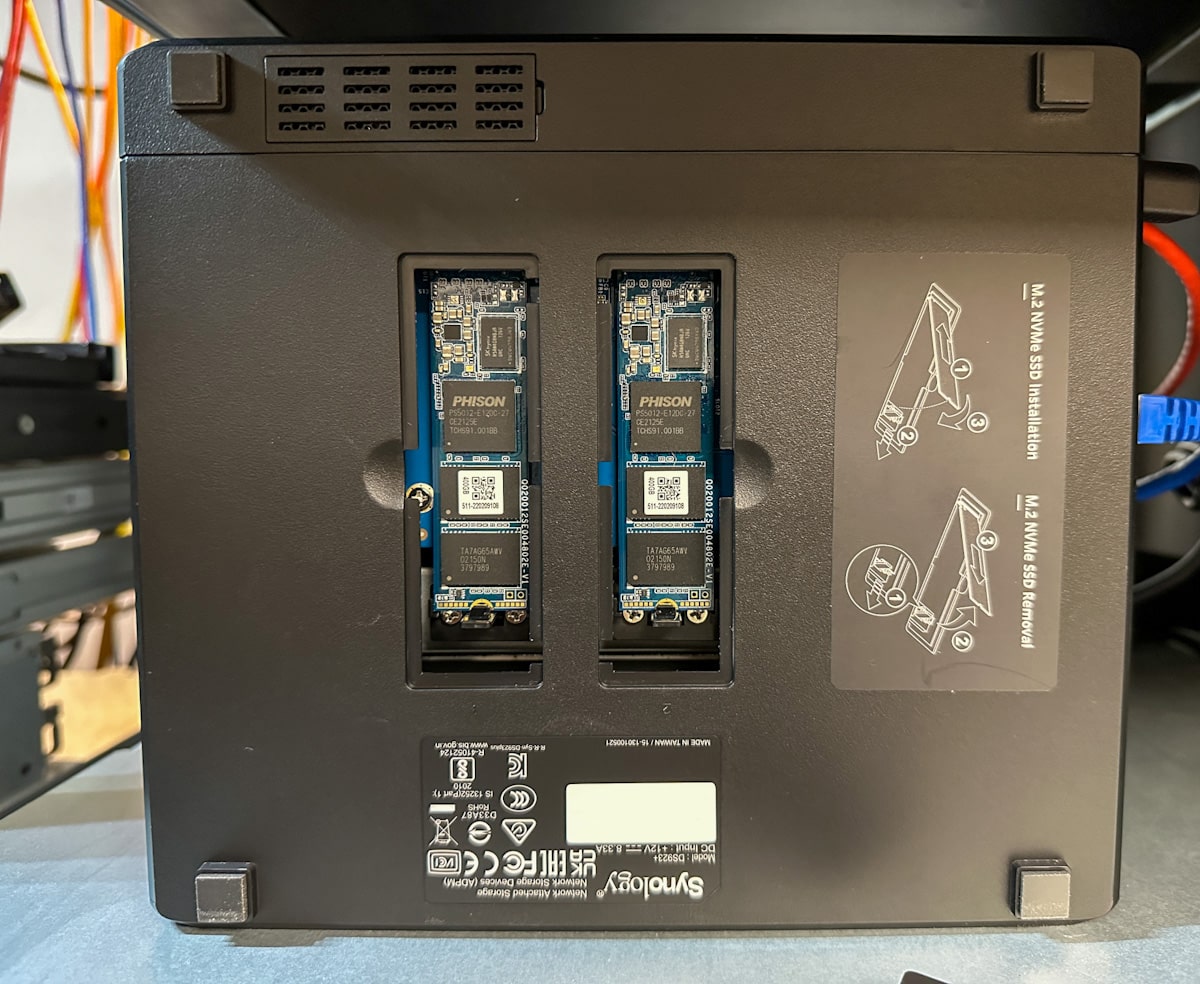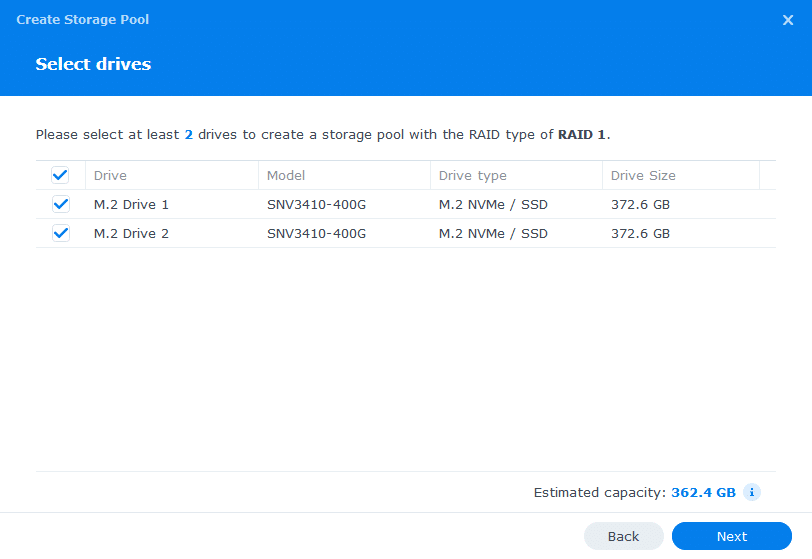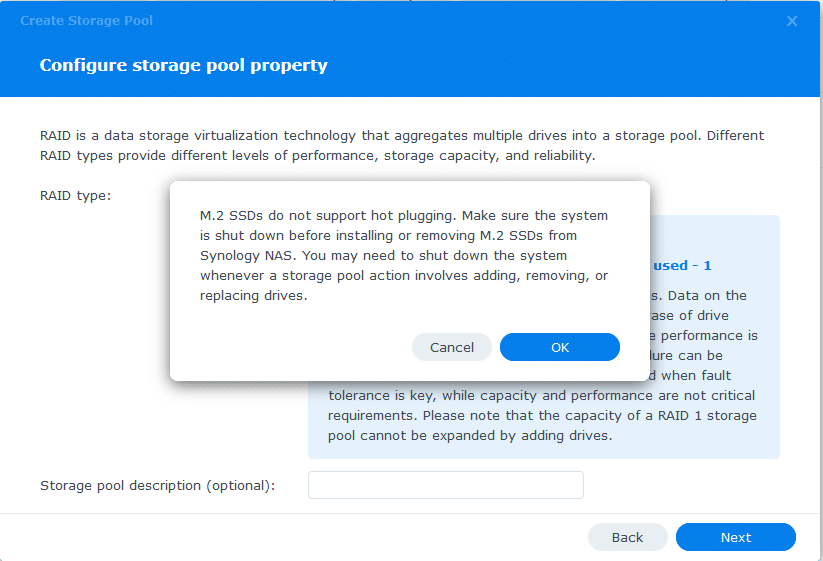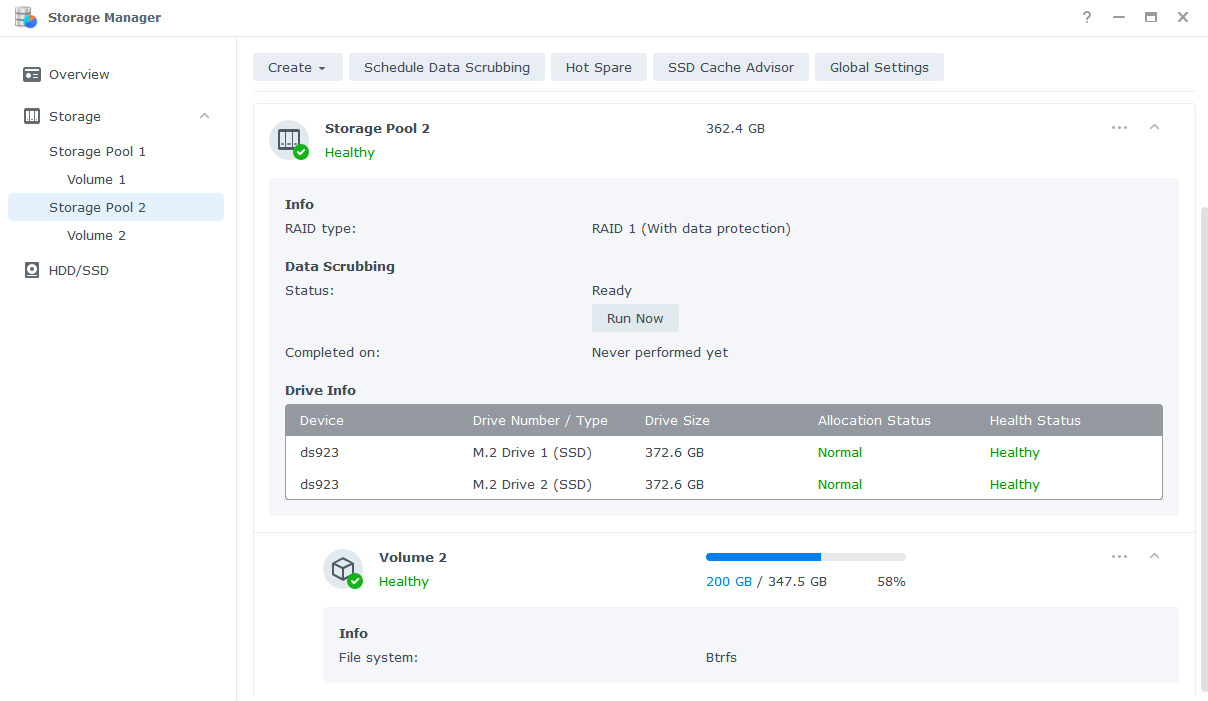While prepping a DS923+ NAS for a full review, we noticed that Synology has quietly added support for M.2 SSD volumes. This is a huge deal, as Synology previously allowed these slotted SSD drives for cache purposes only, limiting their utility. We’ve long complained about the lack of M.2 SSD volume support, hopefully, Synology will roll this out to all models.
While prepping a DS923+ NAS for a full review, we noticed that Synology has quietly added support for M.2 SSD volumes. This is a huge deal, as Synology previously allowed these slotted SSD drives for cache purposes only, limiting their utility. We’ve long complained about the lack of M.2 SSD volumes, hopefully, Synology will roll this out to all models.
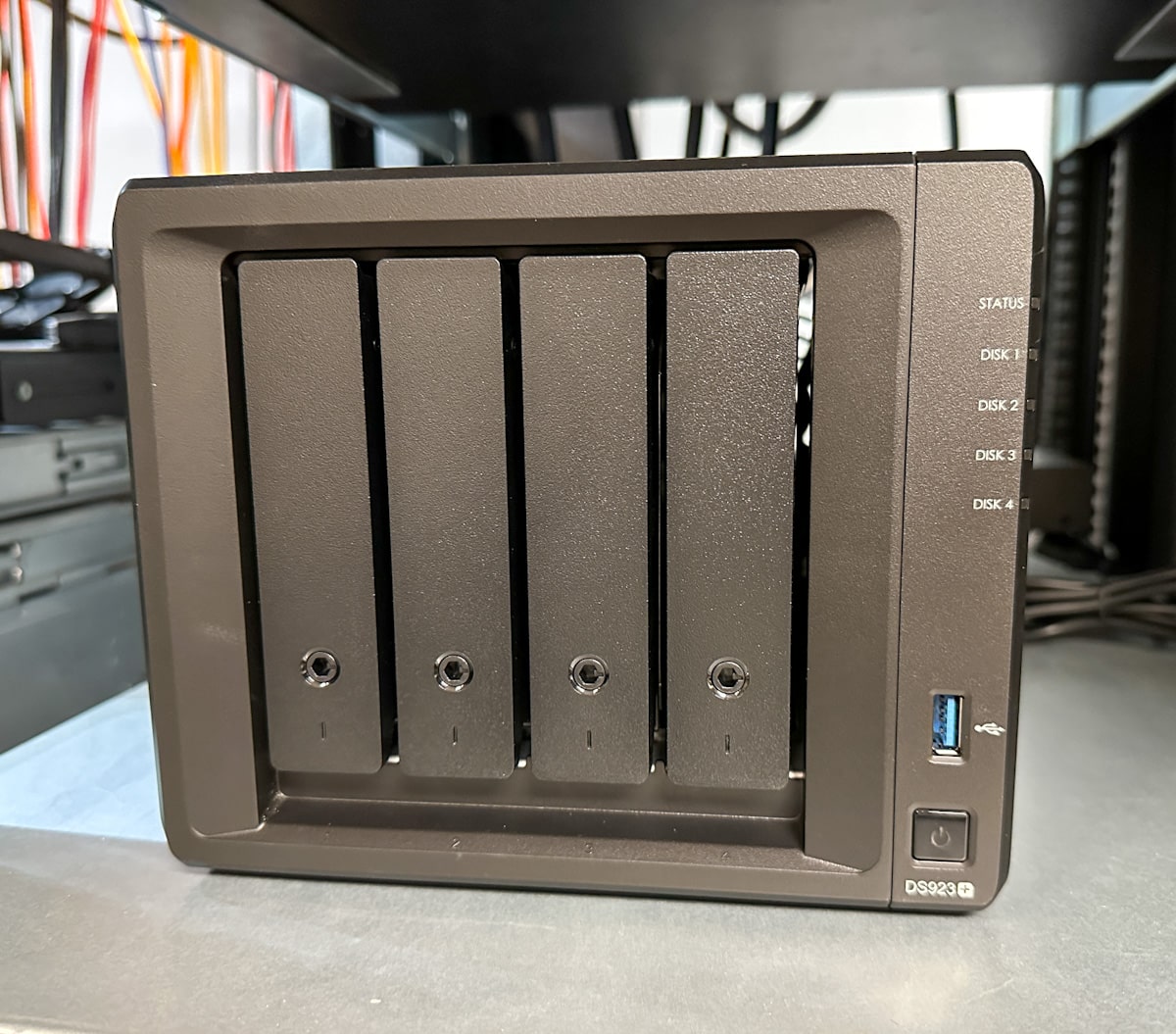
Caching vs. Tiering vs. Distinct Volumes
When using a storage solution, there are generally three options when it comes to configuring your storage:
- Caching: A 1TB volume with 400GB of flash simply makes 400GB of that 1TB faster (i.e., it does not increase storage)
- Tiering: A 1TB volume with 400GB of flash gives you 1.4TB of storage, and anything on flash is often faster compared to caching
- Discrete volume: You have 1TB of HDD and 400GB of SSD installed with two distinct volumes, and you decide which volume your content goes on.
Synology devices only supported the main drive bays with SSDs for creating distinct volumes up to now. When you install an M.2 SSD, it could only be used as a cache. With the DS923+, we can confirm that it now supports using internal NVMe M.2 SSDs as direct volumes.
We’ve been asking Synology about this missing feature for years, so it was a pleasant surprise when noticed that this was an available option for the DS923+. That said, while Synology is now just supporting this, QNAP has supported all three scenarios for internal M.2 drives for years now.
Benefits of NAS NVMe M.2 Pools
Probably one of the more important benefits of using M.2 storage pools is its cost validation. While spending money on SSDs for caching is warranted by many users and businesses, there are certainly a number of them who think the cost is not worth it (as they can’t leverage M.2 drives in the same way as SATA SSDs/HDDs). With the DS923+, these concerns go away.
High performance at a larger scale via M.2 volumes is another huge benefit for Synology customers. Many users need the best possible performance out of their NAS (especially those running things like VMs and Plex servers) and cache isn’t the best solution for all use cases. Users can now create storage pools of speedy NVMe M.2 storage. Another big benefit for internal workloads is the read and write speeds of NVMe far exceed that of SATA drives (or even SATA RAID groups).
Will Support for M.2 NVMe SSD Pools Expand?
Currently, the DS923+ is the only DiskStation that supports M.2 SSD storage pools; however, we hope that Synology will continue down this road and start adding M.2 NVMe storage pool support for most of its future releases. We also would like to see support added retroactively to previously released devices (which could be done via DSM 7.1), but Synology hasn’t commented on whether that’s something they want to do.
Engage with StorageReview
Newsletter | YouTube | Podcast iTunes/Spotify | Instagram | Twitter | TikTok | RSS Feed

